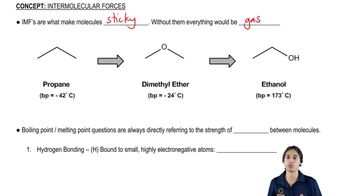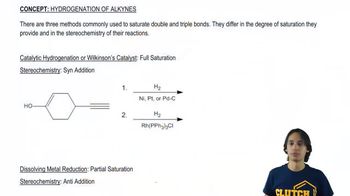Draw the hydrogen bonding that takes place between
c. a molecule of dimethyl ether and two molecules of water.
d. two molecules of trimethylamine and a molecule of water.

 Verified step by step guidance
Verified step by step guidance Verified video answer for a similar problem:
Verified video answer for a similar problem:



 3:08m
3:08mMaster How IMFs are related to melting and boiling points. with a bite sized video explanation from Johnny
Start learning